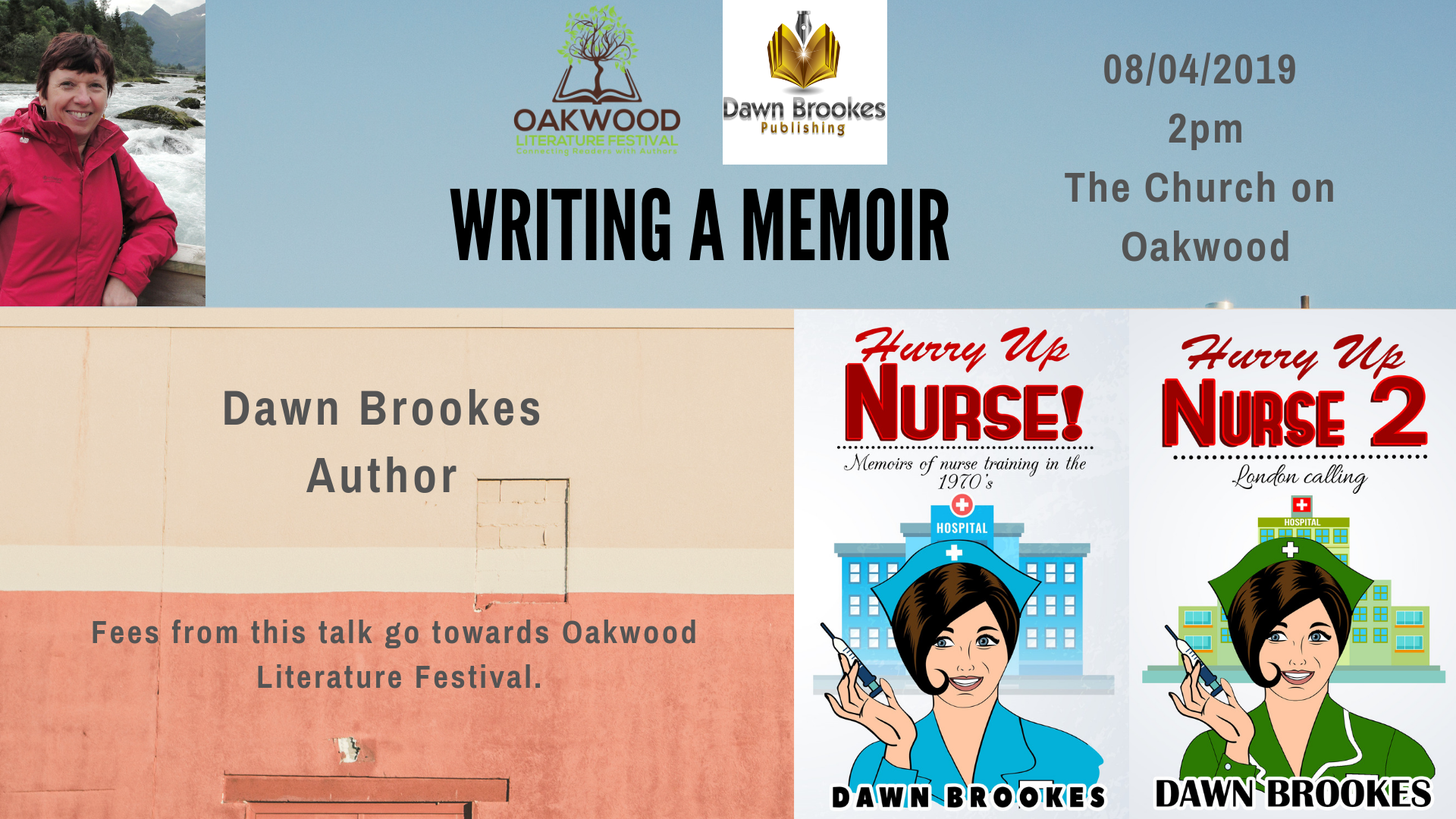Writing a Memoir
By Dawn Brookes, bestselling author of Hurry up Nurse: memoirs of nurse training in the 1970s. Recently I gave a talk at a local church to an interesting group of people, most of whom could write great memoirs if they had a mind to. We all have a story to tell, so if you've ever considered writing your own memoir but don't know where to start, read on... Memoir or Autobiography First of all you need to decide whether their focus is on your whole life story (an autobiography) or on one aspect of your life, bringing in themes, memories and anecdotes that highlight that theme (a memoir). To be honest, unless you're famous or writing for posterity, a memoir is likely to be more readable that an autobiography! Having said that, who knows? Reasons for Writing People have different reasons for writing a memoir or autobiography, some of which are listed below: Personal–writing for posterity, familyAs branding –e.g. running a businessTeach somethingPublishing–writing to publish You don't have to be famous, but it helps! This was a screenshot of the top 17 books listed in the bestseller list of Amazon's memoir/biography section at the time I prepared my talk. Spot the famous people! That said, there are some who weren't well-known prior to writing their biography or memoir. When you niche down, it makes a difference as shown in this screenshot of the bestsellers in nursing category where two of my books feature in the top 18! If I'd taken a screenshot of the US Amazon store, niching down, my book would be top, where it has been for the past 16 months, but hey, that's just showing off! My point is, you can do well within your area of expertise if you're writing a memoir. This only matters if you're considering publishing of course.…
